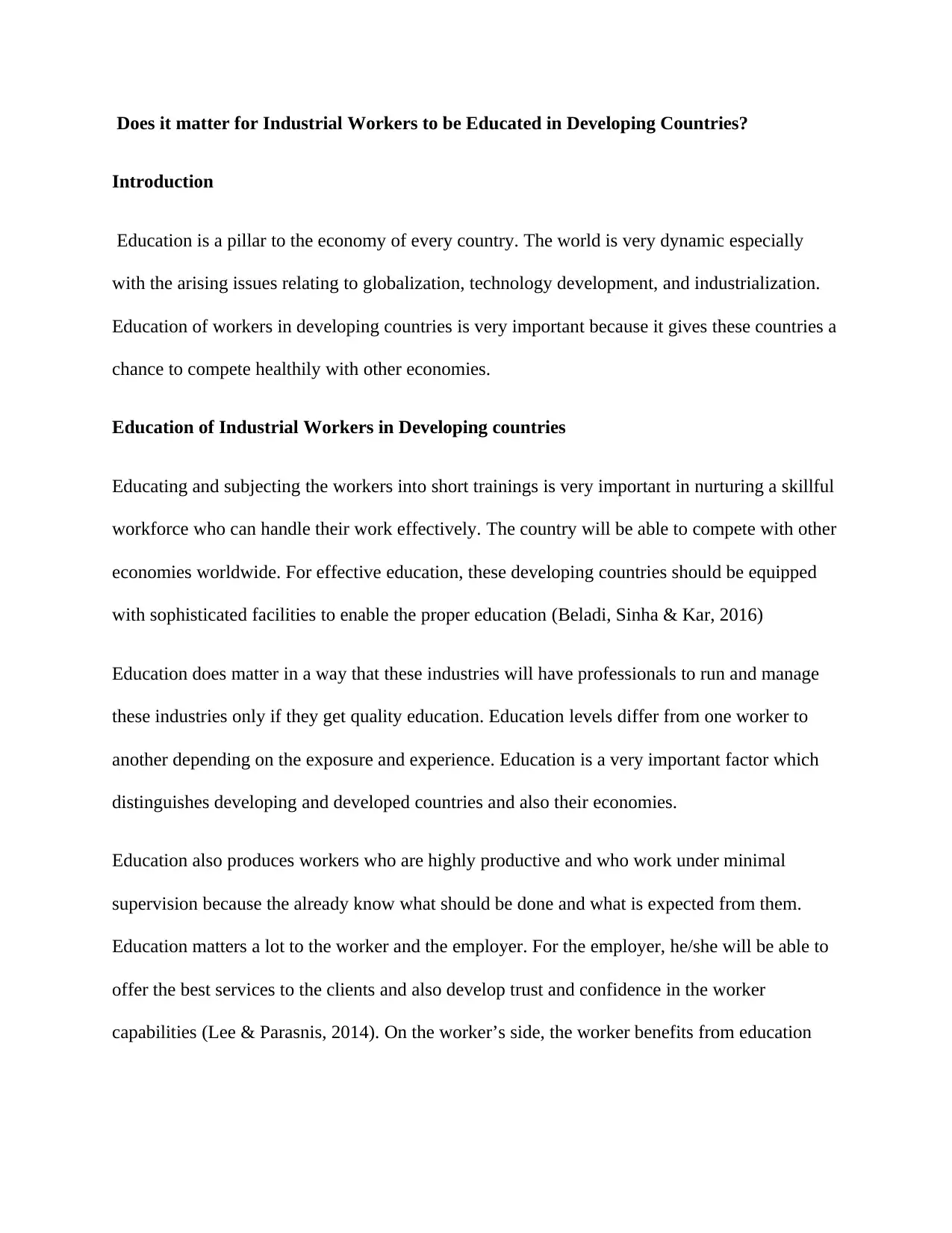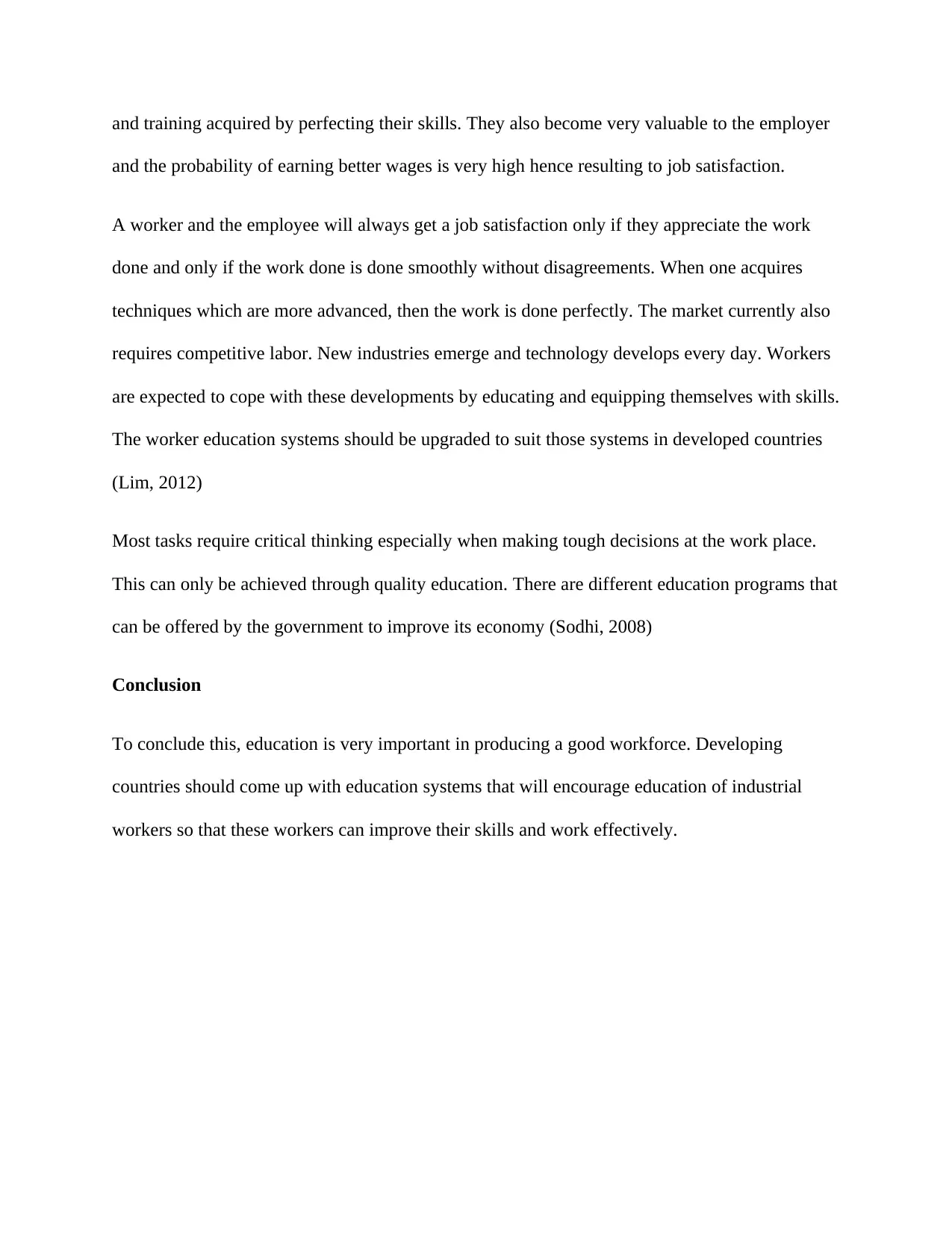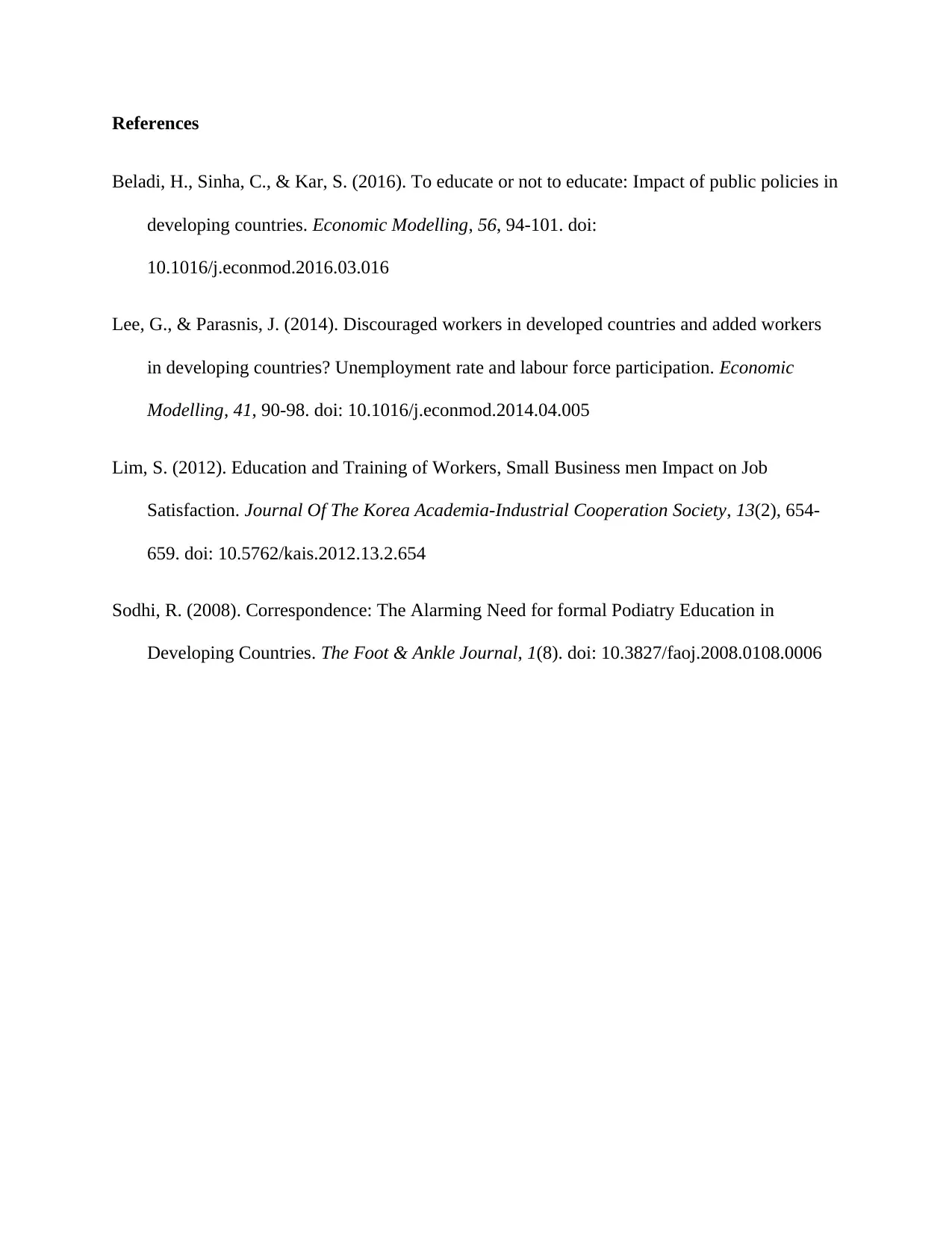Impact of Education on Industrial Workers in Developing Nations
VerifiedAdded on 2023/05/29
|3
|651
|105
Essay
AI Summary
This essay explores the crucial role of education for industrial workers in developing countries. It argues that education is essential for nurturing a skilled workforce, enabling these countries to compete effectively in the global economy. The essay highlights how education equips workers with the necessary skills to handle their jobs effectively, leading to increased productivity and job satisfaction. It also emphasizes the importance of upgrading worker education systems to align with those in developed countries, ensuring that workers can cope with technological advancements and make informed decisions. Ultimately, the essay concludes that developing countries should prioritize education for industrial workers to foster economic growth and improve the overall quality of the workforce. The document is available on Desklib, a platform offering a wide range of study resources for students.
1 out of 3










![[object Object]](/_next/static/media/star-bottom.7253800d.svg)